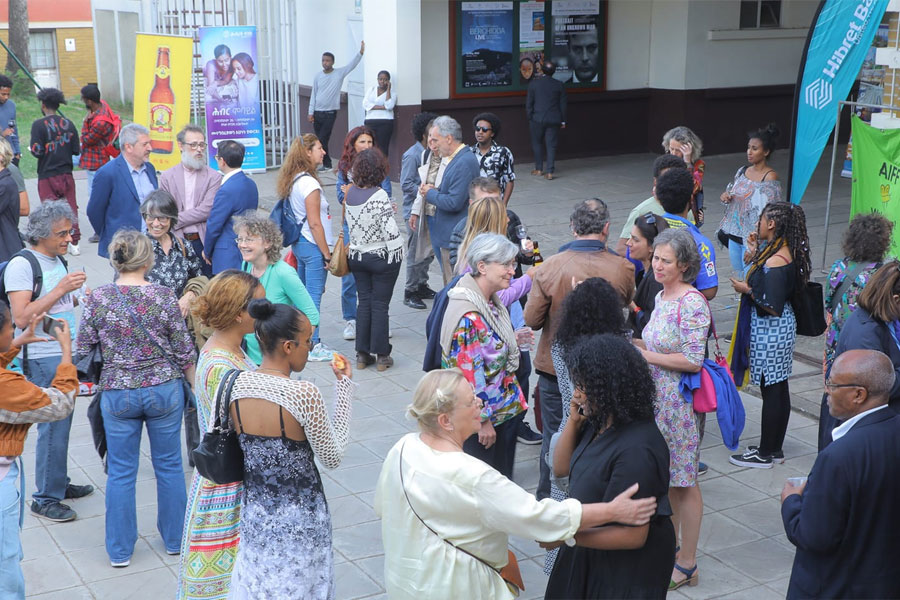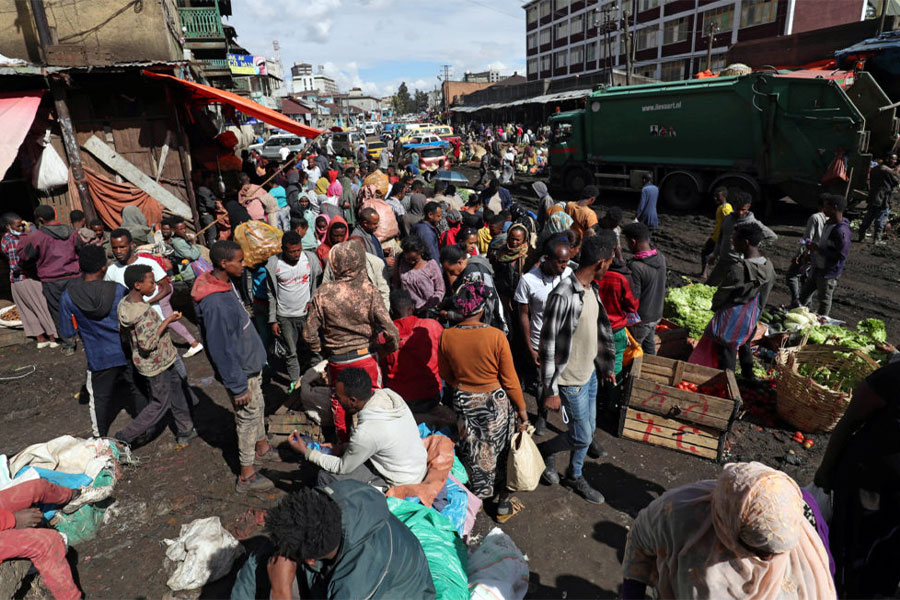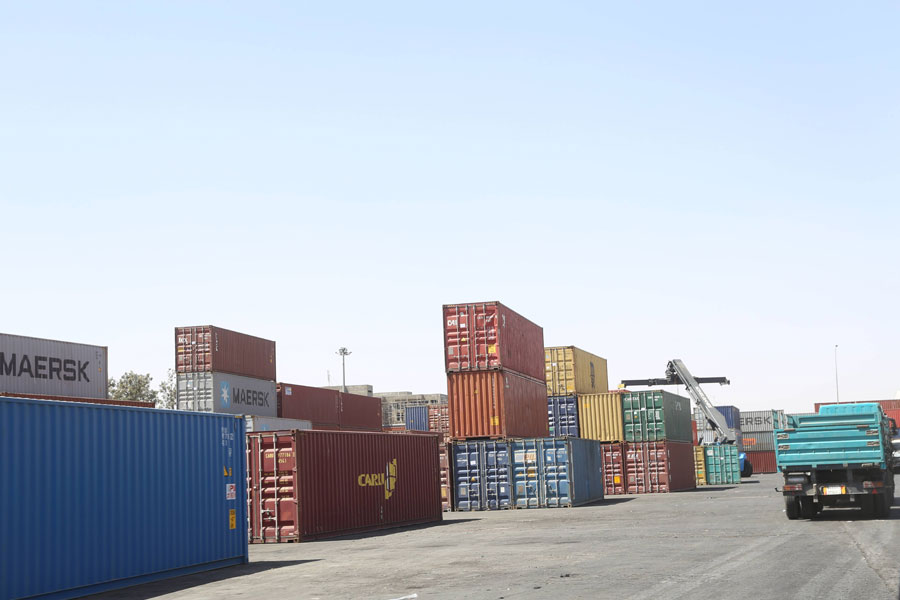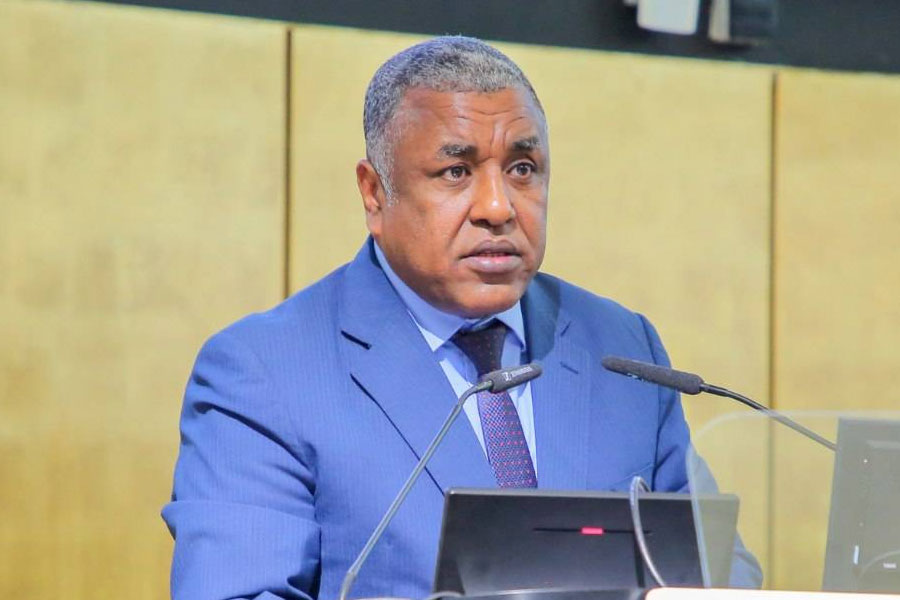
View From Arada | Dec 07,2024
Atsede Tamene (Lt. Col.) was 12 when she first met her role model, Netsanet Asfaw. It was the early 1980s, the Derguewas in power, and the Tigray People’s Liberation Front (TPLF) was an up and coming leftist, revolutionary movement waging armed struggle.
Atsede was a part of this struggle even at that age, and she would meet up with about five more new recruits, which included Netsanet, in Eritrea. For the journalist that came from Germany, the 12-year-old would serve as part of her introduction to a young but gradually strengthening organisation.
Joining an armed struggle was not going to be a walk in the park, something Atsede made sure to mention to Netsanet. She believed that the transition, especially for someone who had lived part of their lives in a developed country, would be particularly jarring.
“You can’t do this. It'll be too hard for you,” Atsede would tell her. “Why don’t you get back to Germany, send us sugar and medicine … that would be more helpful to the struggle.”
Netsanet would have none of this. Every struggle needs its intellectuals close by, she believed, and she would serve the movement better this way. The proof of her determination was her resignation to the rigours of armed struggle: the travelling in the dead of night, the uncomfortable living quarters where they sometimes had to sleep on an assortment of sacks and the plain tasting food.
Cooking, washing clothes and cleaning were all done in turn. Netsanet did not mind doing her share.
“She fit right in,” says Atsede.
It was not just that. She also came up with her own initiatives, such as fighting illiteracy. One of the beneficiaries was Atsede, who could not read and write then, and did not see the point in being able to. Netsanet persuaded her otherwise.
“The war will end, and there will be two types of people,” Netsanet told Atsede then. “The educated and the uneducated. The latter will be condemned to a life of cleaning, cooking and washing clothes.”
This scared her into learning under Netsanet’s tutorship during the years of armed struggle.
“I never thought it was of any value, but she persuaded me otherwise,” says Atsede, who recently did her masters and wrote her dissertation on federalism.
Netsanet, whom many young women in the struggle looked up to, passed away on March 9, 2020, at 75 years old, after battling complications from a fall she took 10 months ago. Survived by a daughter, she was first a journalist, then a leading member in an armed struggle, before getting appointments to various positions in government offices and serving as an MP in the federal parliament.
Having lived in Germany for about half a decade before returning to join the struggle, she ended up being one of its well-known figures.
Among her most prominent roles was head of press and information at the Office of the Prime Minister during the late 1990s, minister of state for information and director of the Peace & Security Division at the Intergovernmental Authority on Development (IGAD).
One of these posts, as head of the Information Ministry, which stretched into the mid-2000s, did expose her to criticism. In defence of her party’s efforts at improving gender equality and rejecting allegations that the government is not committed to holding free and fair elections, she was at the centre of a turning point in Ethiopian politics. The subsequent deterioration of political rights after 2005 has been directly related to that election.
Indeed, while Netsanet defended her party, she did not believe it was perfect either.
"People make mistakes, and when they make mistakes, criticize them. But when they do good, recognise that as well," she told the Voice of America (VoA) at the time.
One of her particular focuses was on women’s rights. She was a member of a women’s committee under parliament during her MP years, an advocate for women’s reproductive rights, especially in pastoral communities, as well as a defender of the economic and political rights of women as enshrined in the constitution.
“She used to tell us that, since we are women, we have to work for women as well,” says Workenesh W. Iyesus, a former MP that knew her since the struggle years. “She was very interested to know why women in the region were supportive of the TPLF.”
For Worknesh, this was a part of how Netsanet liked to be by the side of all of those who needed help, and women’s place in society made them a prime candidate for her attention.
“She helped out people. It was obvious because, everywhere we went, people embraced her with deep affection,” says Worknesh.
Amabaye Tewolde-medhin, her brother, agrees, using adjectives such as “humble” and “good” to describe her.
“Like everyone, she loved fine food, good conversations,” he says. “A person I will remember as having loved to help others, she particularly loved being around children.”
PUBLISHED ON
Mar 21,2020 [ VOL
20 , NO
1038]

View From Arada | Dec 07,2024

Commentaries | Oct 18,2025

Fortune News | May 28,2022


Radar | Jun 15,2025

Dec 22 , 2024 . By TIZITA SHEWAFERAW
Charged with transforming colossal state-owned enterprises into modern and competitiv...

Aug 18 , 2024 . By AKSAH ITALO
Although predictable Yonas Zerihun's job in the ride-hailing service is not immune to...

Jul 28 , 2024 . By TIZITA SHEWAFERAW
Unhabitual, perhaps too many, Samuel Gebreyohannes, 38, used to occasionally enjoy a couple of beers at breakfast. However, he recently swit...

Jul 13 , 2024 . By AKSAH ITALO
Investors who rely on tractors, trucks, and field vehicles for commuting, transporting commodities, and f...

Oct 25 , 2025
The regulatory machinery is on overdrive. In only two years, no fewer than 35 new pro...

Oct 18 , 2025
The political establishment, notably the ruling party and its top brass, has become p...

Oct 11 , 2025
Ladislas Farago, a roving Associated Press (AP) correspondent, arrived in Ethiopia in...

Oct 4 , 2025
Eyob Tekalegn (PhD) had been in the Governor's chair for only weeks when, on Septembe...